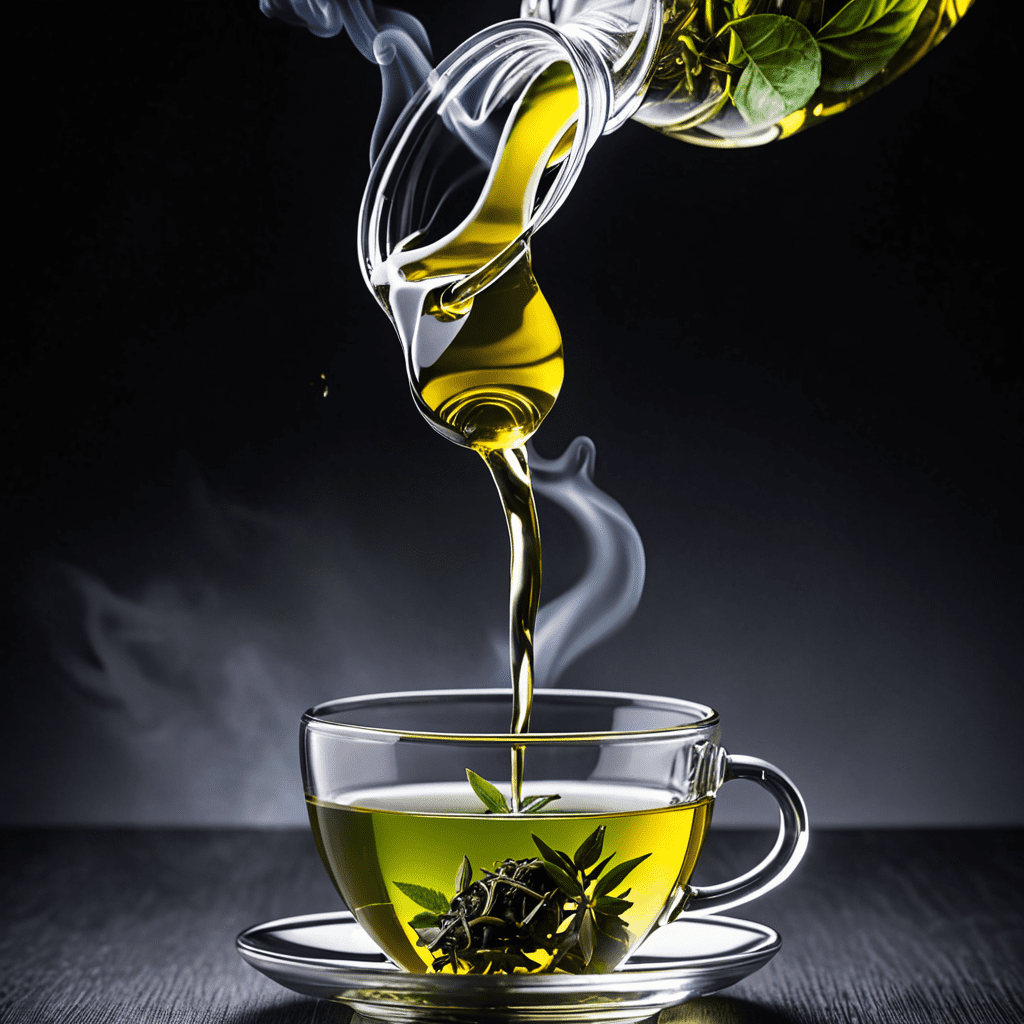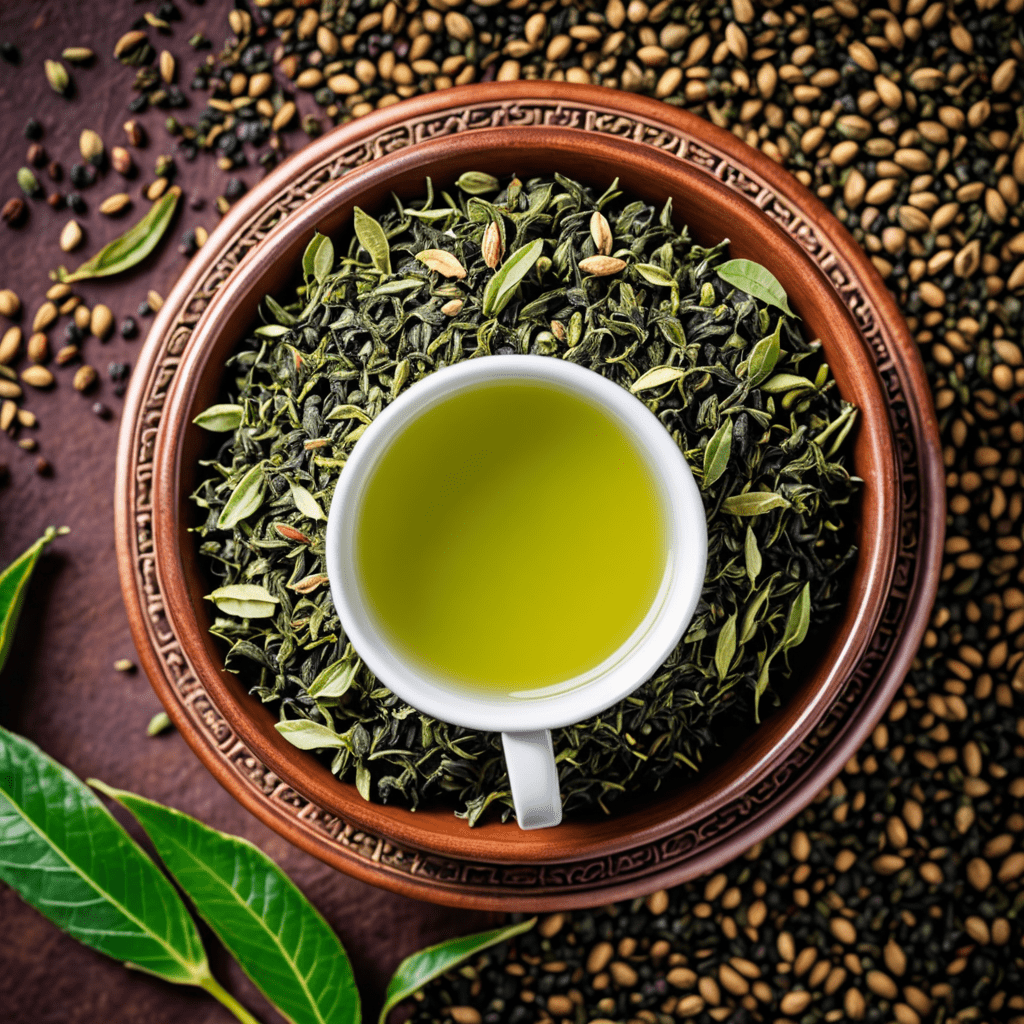1. Introduction: Assam Tea: India's Black Gold
Assam tea, India's crown jewel in the world of tea, is a captivating beverage steeped in history, flavor, and tradition. Its rich, malty notes and invigorating aroma have made it a beloved drink across the globe, earning it the title of "India's Black Gold." Assam tea is a testament to the country's agricultural heritage and its position as a leading producer of this cherished brew.
2. History of Assam Tea: From Serendipity to Global Recognition
The story of Assam tea is one of serendipity and innovation. In the 19th century, British planters stumbled upon wild tea plants thriving in the lush Brahmaputra Valley of Assam. Recognizing the plant's potential, they began cultivating and processing tea on a commercial scale. By the early 20th century, Assam tea had gained global acclaim for its distinctive flavor and high quality, establishing India as a major player in the international tea market.
3. Geographic Origins and Climate: The Brahmaputra Valley's Ideal Conditions
Assam tea owes its unique characteristics to the specific geographic and climatic conditions of its origin. The Brahmaputra Valley, where most Assam tea is grown, is a fertile region blessed with abundant rainfall, warm temperatures, and well-drained soil. These conditions provide the ideal environment for the tea plants to flourish, producing large, robust leaves that yield a deep, flavorful brew.
4. Varieties of Assam Tea: From CTC to Orthodox
Assam tea is processed using two main methods, resulting in distinct varieties with unique characteristics. CTC (Crush, Tear, Curl) tea is machine-processed, creating smaller, more uniform leaves that produce a strong, full-bodied brew. Orthodox tea, on the other hand, undergoes a more traditional hand-rolled process, resulting in larger, whole leaves that yield a more delicate, nuanced flavor. Both CTC and Orthodox teas offer a range of flavors and strengths, catering to diverse taste preferences.
5. Flavors and Characteristics: Exploring Assam Tea's Rich Profile
Assam tea is renowned for its robust, malty flavor profile, with hints of caramel and chocolate. Its full-bodied nature makes it an ideal tea for enjoying with milk and sugar, or for blending in tea lattes and other beverages. The tea's high tannin content also contributes to its astringency, creating a satisfying and invigorating drinking experience. Assam tea's distinct flavor and aroma have made it a beloved choice for tea enthusiasts worldwide.
6. Health Benefits: The Powerhouse of Antioxidants
Assam tea is more than just a delicious beverage; it is also a powerhouse of antioxidants. Antioxidants are compounds that help protect our cells from damage caused by free radicals, which are unstable molecules that can contribute to chronic diseases such as heart disease and cancer. Assam tea is particularly rich in polyphenols, a type of antioxidant found in many plants. Studies have shown that regular consumption of Assam tea can help reduce oxidative stress, improve heart health, and even lower the risk of certain types of cancer.
7. Brewing Techniques: Unlocking Assam Tea's Full Potential
To fully appreciate the rich flavors of Assam tea, it is important to brew it properly. The ideal brewing method depends on the type of tea you are using. CTC teas are best brewed using the boiling water method, while Orthodox teas require a more delicate approach. For CTC teas, use one teaspoon of tea leaves per cup of water and steep for 3-5 minutes. For Orthodox teas, use two teaspoons of tea leaves per cup of water and steep for 4-6 minutes. Always use freshly boiled water and warm your teapot before brewing to ensure the optimal extraction of flavors.
8. Culinary Applications: Assam Tea Beyond the Teacup
Assam tea's versatility extends beyond the teacup. Its bold flavors make it an excellent ingredient in various culinary creations. Assam tea can be used to marinate meats, adding a savory depth of flavor. It can also be used to create flavorful sauces, dressings, and even desserts. Some popular culinary applications of Assam tea include tea-infused ice cream, tea-braised short ribs, and tea-based cocktails.
9. Sustainable Practices: Ensuring a Legacy of Quality
Assam tea is not only a culinary delight but also a product of sustainable practices. Many Assam tea producers have implemented eco-friendly farming techniques to minimize their environmental impact. These practices include organic farming, water conservation, and soil management. Sustainable practices ensure the long-term health of Assam's tea gardens and the preservation of the region's unique ecosystem.
10. Assam Tea Culture: A Heritage Steeped in Tradition
Assam tea is more than just a beverage; it is an integral part of Assam's cultural identity. Tea gardens are an iconic part of the landscape, and the tea industry plays a significant role in the region's economy and social fabric. Assam tea is deeply intertwined with the local traditions, festivals, and cuisine. Tea drinking is a social occasion in Assam, enjoyed by people from all walks of life. The region's vibrant tea culture is a testament to the enduring popularity and significance of Assam tea.
FAQ
Q: What is the difference between CTC and Orthodox Assam tea?
A: CTC (Crush, Tear, Curl) tea is machine-processed, resulting in smaller, more uniform leaves that produce a strong, full-bodied brew. Orthodox tea undergoes a more traditional hand-rolled process, yielding larger, whole leaves that offer a more delicate, nuanced flavor.
Q: How can I brew Assam tea perfectly?
A: The ideal brewing method depends on the type of tea. For CTC teas, use one teaspoon of tea leaves per cup of water and steep for 3-5 minutes. For Orthodox teas, use two teaspoons of tea leaves per cup of water and steep for 4-6 minutes. Always use freshly boiled water and warm your teapot before brewing.
Q: What are the health benefits of Assam tea?
A: Assam tea is a rich source of antioxidants, which help protect our cells from damage. Regular consumption of Assam tea may reduce oxidative stress, improve heart health, and lower the risk of certain types of cancer.
Q: Is Assam tea sustainable?
A: Many Assam tea producers have implemented sustainable farming practices to minimize their environmental impact. These practices include organic farming, water conservation, and soil management, ensuring the long-term health of Assam's tea gardens and the preservation of the region's unique ecosystem.



